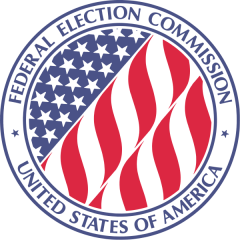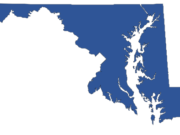Chair Ann M. Ravel
Vice Chairman Matthew S. Petersen
Re: Federal Election Commission “Public Forum on Women in Politics”
Dear Chair Ravel, Vice Chairman Petersen, and fellow Commissioners:
The Center for Competitive Politics[1] enthusiastically supports efforts to encourage greater participation in political campaigns. Actions to make it easier for citizens to run for office and participate in campaigns will also help increase the number of women who run for office and participate in political parties and political committees.
Existing Regulations and Reporting Requirements are an Impediment to Participation
One of the greatest impediments to participation in political campaigns is the sheer complexity of our campaign finance laws and regulations as well as the difficulty in properly filing the required reports. We commend the Federal Election Commission (FEC) for recommending that “Congress should increase and index for inflation certain registration and reporting thresholds in the Federal Election Campaign Act that have not been changed since the 1970s.”[2]
As noted in the FEC’s explanation of the recommendation, “[r]aising this threshold would be particularly beneficial for local and Congressional district committees of political parties. These organizations frequently breach the $1,000 threshold. An increased threshold would permit limited spending on federal elections without triggering federal political committee status for local and Congressional district committees of political parties.”[3] Such committees play a vital role in introducing citizens into political campaigns, and many of these individuals later run for office.
While the FEC did not recommend a particular threshold, it should be raised considerably. We think $50,000 is a reasonable threshold, but it certainly should be no less than the $25,000 threshold required for a group to file as a Section 527 organization with the IRS. Raising such thresholds is one small but important step that can be taken to reduce the burdensome filing requirements for grassroots groups that work to encourage women to run for office.
I also strongly urge the Commission to take action on the petition for rulemaking submitted by a bipartisan group of seven well-known campaign finance lawyers, including a bipartisan group of three former FEC chairmen, to propose new rules providing for improved forms and instructions. The petition notes that grassroots “or unsophisticated filers are often led astray by the current forms, and that even sophisticated filers must guess about how to translate their conduct to the forms’ categories and design quirks. The consequences include…unnecessary legal exposure for filers struggling to comply with the Act’s reporting requirements.”[4]
The Importance of Draft Committees
Perhaps the most promising avenue available to increasing the number of women in politics is the draft committee. In late 1980 and early 1981, the FEC filed several lawsuits against groups that had sought to draft Senator Edward Kennedy into the presidential race. The FEC asserted that these groups were political committees under the law and that they had accepted contributions over the $5,000 limit. As you know, the FEC lost these cases, and draft committees are not considered political committees.
Draft committees could be incredibly effective to encouraging particular women to run for office, but the area is a legal minefield. Unfortunately, it is yet another example of how the FEC loses in court, but fails to write regulations that can provide guidance to those seeking to use their rights to speak. The sole regulation on this topic is the one allowing a draft committee to “include the name of such individual [it seeks to draft] in the name of the committee provided the committee’s name clearly indicates that it is a draft committee.”[5]
Chair Ravel, I urge you to consider this question: How would someone start and conduct a national committee to draft women to run for Congress? What would the group be allowed to do? How could it go about recruiting such candidates? Could it share polling information with potential candidates it seeks to recruit? What happens if such a person later decides to become a candidate? There are many unanswered questions about draft committees; questions that the FEC can and should answer by issuing regulations that provide safe harbors for those who want to run draft committees to encourage more candidates to run for office.
Tax-Financed Campaigns Do Not Increase Women in Office
To the extent tax-financing programs are suggested as a tool to increase the number of women in office, the Center’s research contradicts this theory. We analyzed the number of women elected to the legislature between the 1990 and 2012 elections in two states that began operating robust tax-financed campaign programs for legislative candidates in 2000, Arizona and Maine.[6] In both states, we observed that the legislature with the highest percentage of women occurred prior to the implementation of tax-financed campaigns. Ultimately, our analysis found that, “[t]he average number of female legislators in Arizona and Maine declined slightly in both states after they began providing taxpayer dollars to legislative candidates. Both states also witnessed the highest number of women in their Legislatures before the inception of their tax-funded campaign programs, and the lowest number of women after.”[7]
In Connecticut, which implemented a tax-financing program more recently, in 2008, the evidence has been strikingly similar. The Constitution State has the same number of women in its General Assembly today – 53 – as it did in the final iteration of the General Assembly before the state’s tax-financing program went into effect.[8]
In light of our findings, to the extent that tax-financing programs are posited as a means of encouraging the greater involvement of women in politics, such schemes should be rejected outright. For more information about the Center’s research on Arizona and Maine’s experiment with tax-financed campaigns and its impact (or lack thereof) on electing women to each state’s legislature, I strongly encourage you to consult the Center’s attached Issue Analysis on the subject, “Do Tax-Funded Campaigns Increase the Percentage of Women in State Legislatures?”
* * *
Thank you for considering our comments and the Center’s research on this important topic.
Respectfully yours,
David Keating
President
https://ifs-site.mysitebuild.com/wp-content/uploads/2015/05/2015-05-12_Keating-Comments-And-Research_FEC_Women-In-Politics-Forum.pdf
[1] The Center for Competitive Politics is a nonpartisan, nonprofit 501(c)(3) organization that promotes and protects the First Amendment political rights of speech, assembly, and petition. It was founded in 2005 by Bradley A. Smith, a former Chairman of the Federal Election Commission. In addition to scholarly and educational work, the Center is actively involved in targeted litigation against unconstitutional laws at both the state and federal levels. For instance, we presently represent nonprofit, incorporated educational associations in challenges to state campaign finance laws in Colorado and Delaware. We are also involved in litigation against the state of California.
[2] Chairman Lee E. Goodman et al., “Legislative Recommendations of the Federal Election Commission 2014,” Federal Election Commission. Retrieved on May 12, 2015. Available at: http://www.fec.gov/law/legrec2014.pdf (December 11, 2014), p.11.
[3] Ibid.
[4] Robert F. Bauer et al., “Petition for Rulemaking.” Retrieved on May 12, 2015. Available at: https://ifs-site.mysitebuild.com/wp-content/uploads/2015/01/Petition-FEC.pdf (January 23, 2015), p. 1.
[5] 11 C.F.R. § 102.14(b)(2).
[6] Matt Nese and Luke Wachob, “Do Tax-Funded Campaigns Increase the Percentage of Women in State Legislatures?,” Center for Competitive Politics’ Issue Analysis No. 3. Retrieved on May 12, 2015. Available at: https://ifs-site.mysitebuild.com/wp-content/uploads/2013/08/Issue-Analysis-3.pdf (August 2013).
[7] Ibid., p. 3.
[8] “State Fact Sheet – Connecticut,” Center for American Women and Politics. Retrieved on May 12, 2015. Available at: http://www.cawp.rutgers.edu/fast_facts/resources/state_fact_sheets/CT.php (2015).














